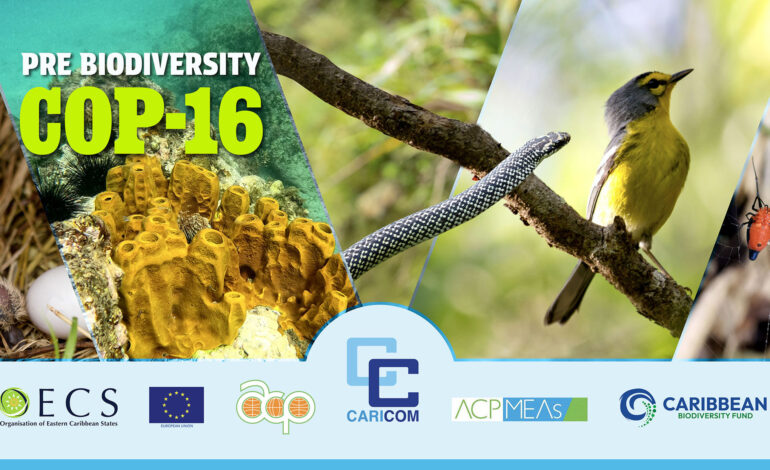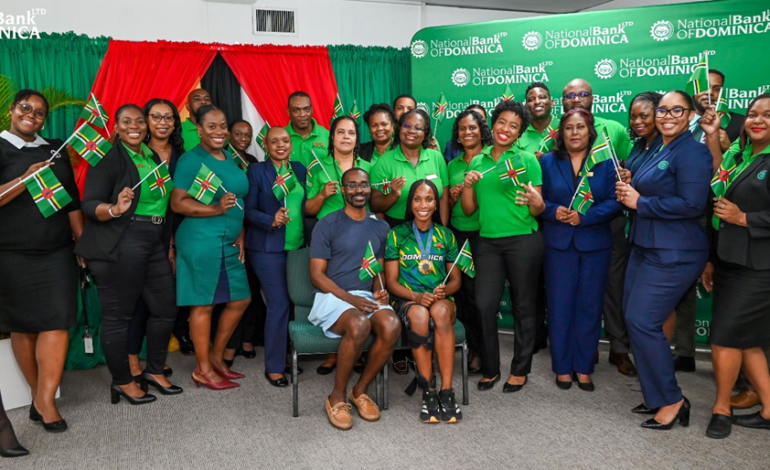
OECS Media Release
How concerned would you be if you were told that you would not be able to provide food or a safe home for your family in the next ten years? How would you feel if you were told that you could help avoid such a catastrophe?
We face several existential threats—dangers that could cause destruction or irreversible harm to humanity—including biodiversity loss. Biodiversity refers to the variety of all life forms on Earth, encompassing species, genetic differences, and ecosystems. Biodiversity loss in addition to the rate at which it is lost is a growing concern and continues to be a major challenge for leaders and conservationists around the world.
Currently, many plant and animal species are critically endangered, including the Grenada dove, the hawksbill turtle, the Antiguan racer, and the Saint Lucian racer—the rarest snake in the world. These are just a few among the over 200 critically endangered species of mammals, birds, reptiles, amphibians, fish, and plants in the Caribbean region. Conserving biodiversity is fundamental to sustaining life on Earth. They are crucial for the production of essential medicines, food and water security, climate change adaptation and mitigation, cultural values, economic development, and more, making them indispensable for a sustainable future.
The United Nations will be hosting its 16th Conference of Parties on Biological Diversity (COP16) from October 21 – November 1, 2024, in Cali, Colombia. “At COP16, governments will be tasked with reviewing the state of implementation of the Kunming-Montreal Global Biodiversity Framework. Parties to the Convention are expected to demonstrate the alignment of their National Biodiversity Strategies and Action Plans (NBSAPs) with the Framework. COP16 will further develop the monitoring framework and advance resource mobilization for the implementation of the Global Biodiversity Framework” – www.cdb.int.
To adequately prepare Caribbean negotiators for effective participation at COP16, a Regional Preparatory Workshop has been planned for regional participants in Miami from September 11-13. The workshop is organised under the Caribbean Hub of the Project for Capacity Building for Multilateral Environmental Agreements (MEAs) in African, Caribbean, and Pacific (ACP) Countries. It will be implemented by the CARICOM Secretariat in partnership with the OECS Commission’s European Union (EU)-funded Biodiversity Support Programme for ACP Coastal Environments – BioSPACE Project, and the Caribbean Biodiversity Fund’s (CBF) Effective Marine Protected Area Activities for the Caribbean (EMPAC) Project.
The workshop is designed to:
- Familiarise participants with the COP16 agenda and the issues to be discussed and negotiated;
- Enable participants to identify and analyze issues most relevant to their national and/or regional interests;
- Facilitate the determination of desired outcomes and the development of national and/or regional positions on key COP16 agenda items; and
- Allow exchanges of views between participants about key COP16 issues, desired outcomes, and potential negotiating strategies.
Participation in COP16 is essential for the Caribbean region to advocate for stronger international commitments to biodiversity conservation, secure resources for protecting its ecosystems, and collaborate on global strategies to preserve its natural heritage. By being involved, the region can ensure that its specific challenges and needs are considered in global biodiversity policies, enhancing its resilience and sustainability.
These global meetings provide the framework for us all to effectively protect and manage our biodiversity. Each of us can work individually and collectively to ensure our environment is not polluted with plastics, agricultural runoff, and sewage. We can also reduce our carbon footprint by turning off lights when not needed and avoiding unnecessary driving, which helps reduce greenhouse gases and curb climate change—a major factor causing damage to coral reefs, altering habitats, and leading to biodiversity loss. Together, we can protect and preserve our planet, our home for present and future generations.





